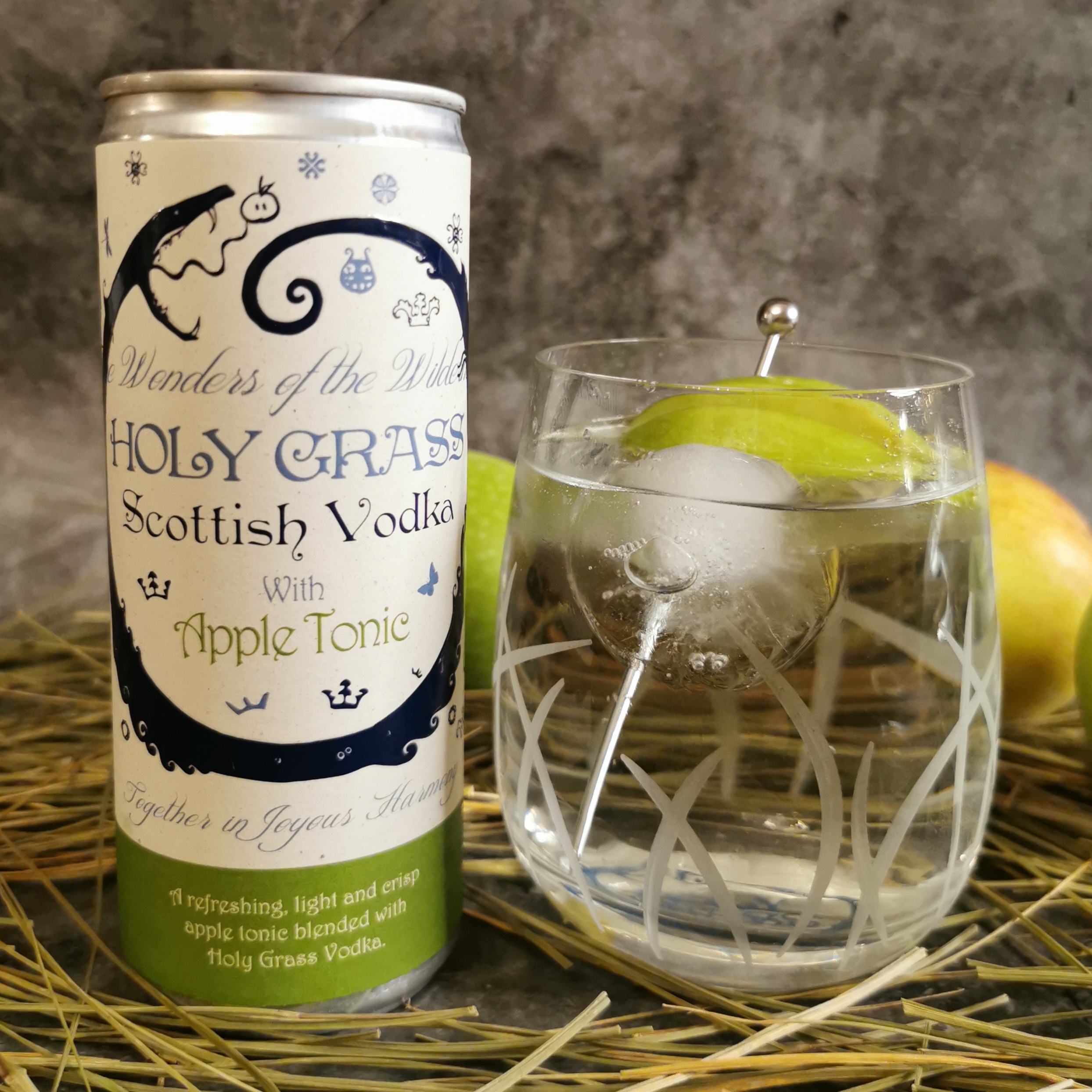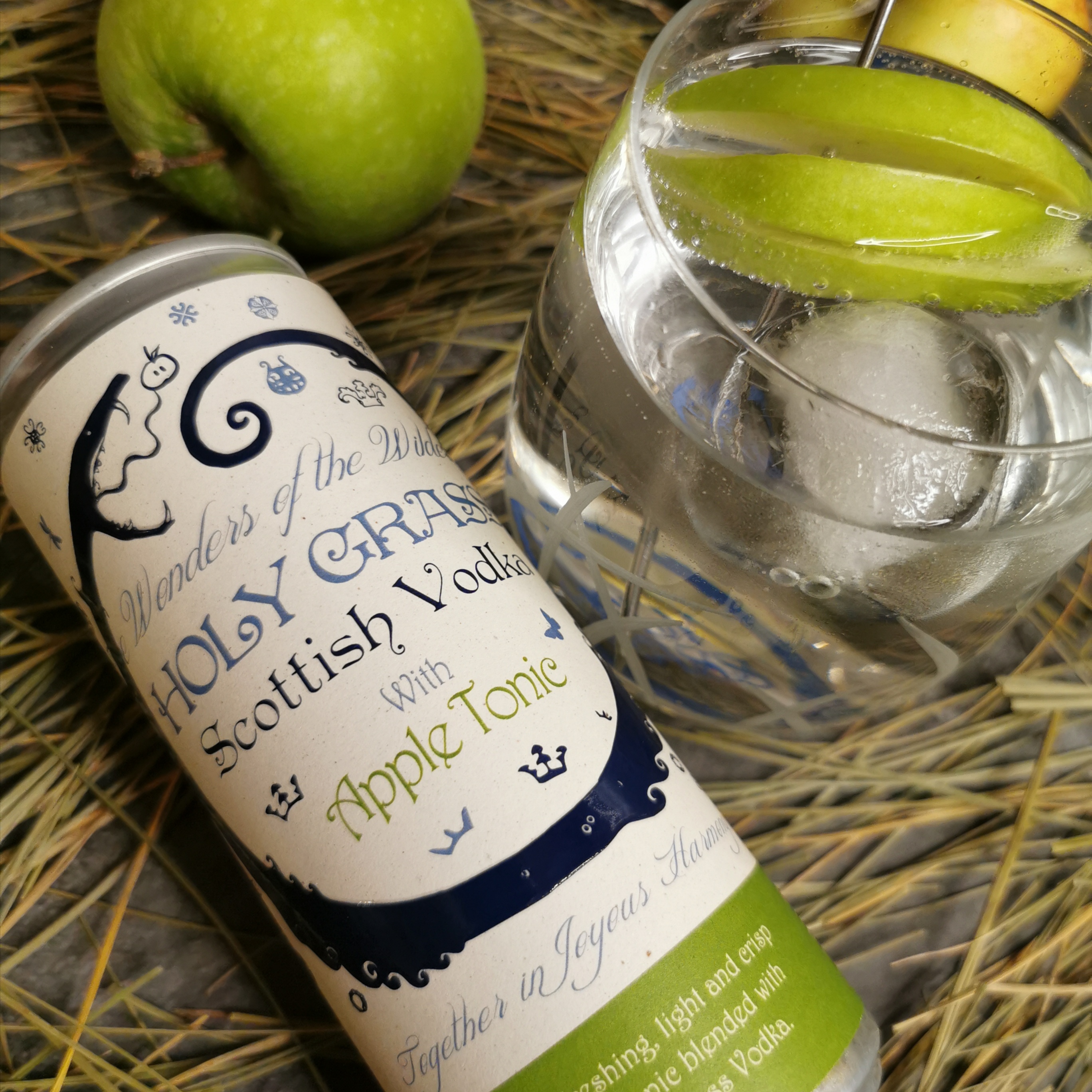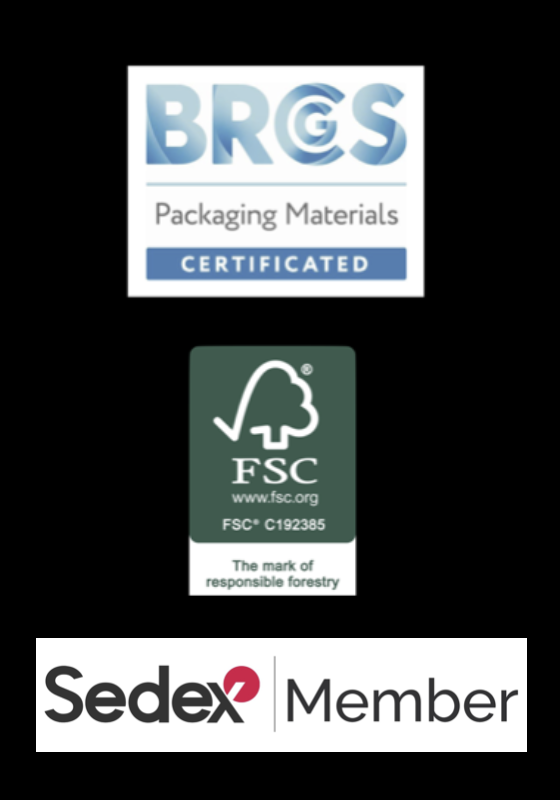Posted by Marbles PR on Oct 18, 2022
The Label Makers’ eco-friendly can label wrap proves ideal for Dunnet Bay Distillers
A can label wrap by The Label Makers for a new ready-to-drink cocktail has taken sustainable labelling to new levels, having been made from 5% apple waste from apple juice production and 95% FSC® certified pulp.
The cocktail, called the Wonders of the Wilderness, which combines award-winning Holy Grass Scottish Vodka with apple tonic, was recently launched by Dunnet Bay Distillers, a family-owned eco-friendly Scottish gin and vodka company based in Caithness. Known for its innovative spirits and its sustainable ethos, the distiller approached The Label Makers, on recommendation, to produce a suitable label for the can. All options were considered including printing, sleeves, and labels, with a paper-based wrap being chosen as the most appropriate format to fit the ethos of the company.
“With aluminium being one of the most environmentally efficient packaging materials, we chose this format as we wanted the label to be as sustainable as possible,” said Sarah Lyons, environment manager at Dunnet Bay Distillers. “It was an easy choice to go for a paper wrap over other labelling options, allowing us to adhere closely to the company’s sustainability principles.”
In creating the can wrap, The Label Makers used Fasson® Apple Touch FSC®, an uncoated matt wood-free printing paper with a smooth surface and made from 5% apple waste from apple juice production, and 95% FSC® certified pulp. The label was digitally printed in full colour, with matt varnish and a high-build tactile finish to highlight the design.
“The Label Makers delivered on time and at a competitive price. Their communication throughout the project was spot on and we are delighted with the end result. We frequently develop new products and would be very happy to work with The Label Makers again in the future,” added Sarah Lyons.
The Label Makers’ business development manager, Dan Wilson, said: “As always when we work with companies like Dunnet Bay Distillers, who have a very strong sustainability stipulation throughout their operation, we do our utmost to match their requirements. Clearly in this case the tie-in between the waste apple pulp and contents of the can work particularly well.”











